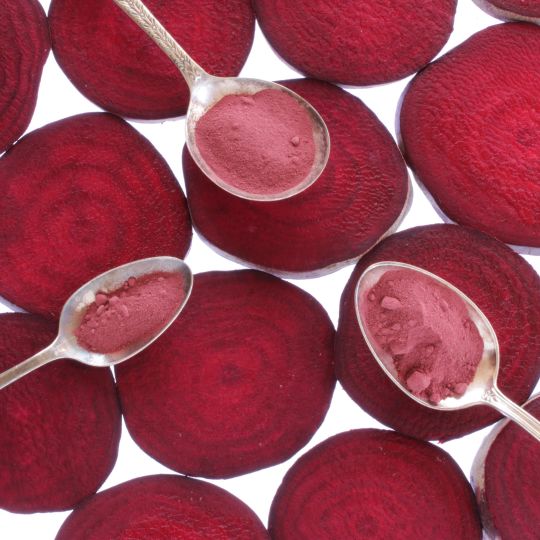Nitric oxide is a molecule that’s produced naturally by your body, and it’s important for many aspects of your health.
Nitric oxide is a gas that diffuses rapidly across cellular membranes and is involved in many physiological processes. When released inside the body, this gas quickly and easily penetrates cells, promoting optimal, physiological function.
Nitric oxide is produced 3 ways in your body:
- It is secreted by the cells in the inner lining (endothelium) of your blood vessels.
- It is converted by oral bacteria from your intake of nitrates from the foods you eat.
- It is created by bacteria on our skin when we are exposed to adequate amounts of sunlight.
5 Reasons You Need to Increase your Nitric Oxide Level
In recent years, the scientific community has become more aware of the vital importance of nitric oxide in the body.
Unfortunately, nitric oxide levels reduce as we get older. This is caused by a lack of dietary nitrates, excessive physical and mental stress, low stomach acid, imbalanced mouth bacteria, anti-inflammatory medicines and damaged arteries.
When you reach 40, your body will produce half the nitric oxide it did at the age of 20.
If you want to achieve optimal health, particularly as you get older, increasing nitric oxide levels becomes very important. Here’s why:
1. Nitric Oxide Can Lower Blood Pressure
Nitric oxide creates vasodilation, meaning it relaxes the inner muscles of the blood vessels, causing them to widen and increase circulation. This increase in flexibility of the blood vessels can result in easier blood flow and lower blood pressure.
Unfortunately, as nitric oxide production declines past the age of 40, the health risks from dysfunctional blood vessels rise significantly.
2. Better Utilization of Nutrients and Oxygen
Nitric oxide production is essential for overall health because it allows blood, nutrients and oxygen to travel to every part of your body effectively and efficiently.
In fact, a limited capacity to produce nitric oxide is associated with heart disease and diabetes.
3. Powerful Antioxidant Properties
Nitric oxide may act as a powerful antioxidant to neutralize harmful, free radical activity because of its ability to promote the formation of glutathione, a critical antioxidant.
4. Better Memory, Mood and Sleep
Nitric oxide may facilitate the transmission of messages between nerve cells, contributing to improved memory and learning capacities, better sleep, and a more positive mood.
5. Improved Exercise Performance
Given that nitric oxide contributes directly to blood flow, oxygen delivery, glucose uptake, muscle velocity, power output, and muscle growth; a higher nitric oxide level may enhance your endurance when exercising.
In fact, a number of studies have shown boosting nitric oxide can reduce the oxygen cost of exercise and improve the function of energy-producing mitochondria, resulting in a lower perceived effort and easier breathing during exercise, in addition to reduced muscle soreness and faster recovery following hard, physical efforts.
How to Raise Your Nitric Oxide Level Naturally
There are natural ways to increase your nitric oxide level. One way is to consume more leafy green vegetables, and beets. Vegetables such as cress, lettuces, spinach, arugula and beets are high in nitrates. When they are consumed, the body converts the nitrates into nitric oxide.
Get Some Extra Help with Natural Ingredients
A number of natural, plant-based ingredients have the ability to support nitric oxide levels in the body, such as:
Beet Root Powder
Nitrate is a compound found in beetroot. When you consume nitrate, your body converts it to nitric oxide, which in turn causes blood vessels to relax and dilate, lowering blood pressure.
L-Citrulline
The body changes L-citrulline into another amino acid called L-arginine and also to nitric oxide. L-citrulline might help open up veins and arteries to improve blood flow and reduce blood pressure.
L-Arginine
Your body uses L-Arginine is used to make nitric oxide.
Grape Seed Extract
Grape seed extract contains several polyphenols, including OPCs (Oligomeric proanthocyanidins) from the grape seeds. The OPCs from grape seeds are very effective at increasing nitric oxide. Human studies show that it may lower blood pressure and heart rate.
Omega 3 fatty acids
Eicosapentaenoic acid (EPA) is an omega-3 fatty acid that has been shown to improve nitric oxide release.
Potassium Citrate
An increase of potassium may swell and soften the endothelial cells and increases the release of nitric oxide.
Vitamin C
Vitamin C can enhance levels of nitric oxide by increasing its bioavailability and maximizing its absorption in the body. Research shows that it may also bump up levels of nitric oxide synthase, the enzyme needed for the production of nitric oxide.
Magnesium Citrate
Studies show that magnesium supplements may help increase the production of nitric oxide.
Resveratrol
Resveratrol may stimulate nitric oxide production.
CoQ10
Studies show that getting enough CoQ10 in your diet not only preserves nitric oxide but can also promote heart health.
Vitamin D3
A major discovery from studies is that vitamin D3 is a powerful stimulator of nitric oxide.
Vitamin B12
B vitamins increase nitric oxide production by reducing homocysteine levels in the blood.
Folic acid
Folic acid may improve nitric oxide bioavailability in individuals with compromised endothelial function.
Selenium
A combination the free-radical scavengers Selenium and Vitamin E may result in a marked increase in the production of nitric oxide.
Acknowledgement:
Thank you to Dr. Rick Cohen for his insights into the benefits of nitric oxide which are included in this article.
Dr. Rick Cohen has worked as a specialist in nutritional medicine and sports performance for more than two decades and developed a number of innovative treatment programs that have successfully helped patients enhance their sports performance as well as eliminate a variety of health problems.
He received his undergraduate degree with honors of distinction from Duke University in Durham, North Carolina, and received his medical degree from Hahnemann Medical University in Philadelphia, Pennsylvania. He is a proud member of several professional organizations including the American College for the Advancement of Medicine and the American Academy of Anti-Aging Medicine.

